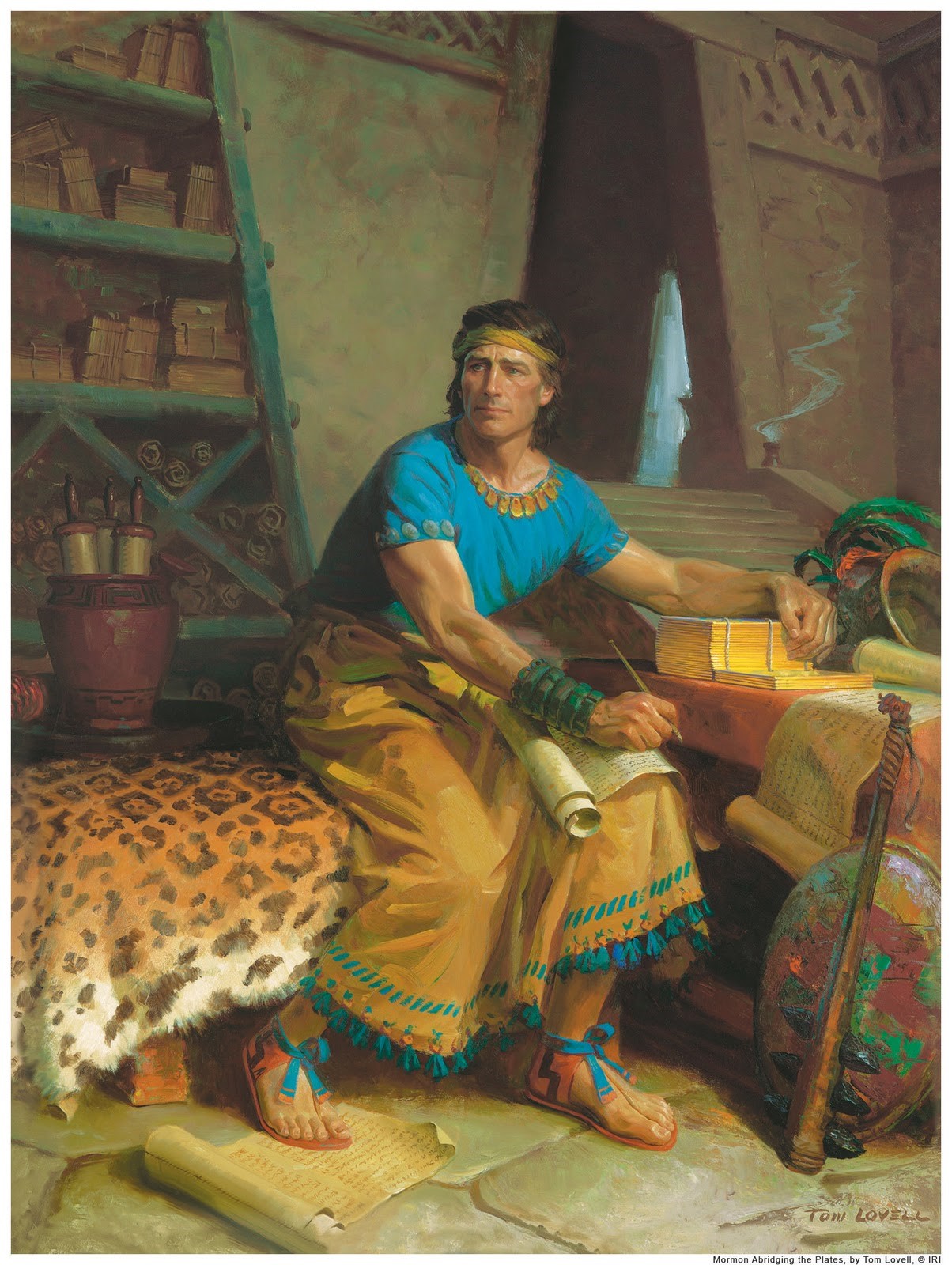To accompany your Come Follow Me study for November 4-10
You will enjoy the following videos related to this week’s reading:
You will also enjoy looking over the related commentary in the Book of Mormon Institute Student Manual:
If you would like a Kahoot game related to this material which you could use for personal study or use with your family or your class, click here: https://create.kahoot.it/share/mormon-7-9/7dd53e59-2667-43cb-88f4-f5cfe3609abc. To use it with a group, after clicking on this link, you will need to log into Kahoot, creating a free account if you have not done so previously, then click on the blue “Host Live” button or the gray “Assign” button, depending on how you wish to use the Kahoot. Some of the Kahoot questions may presuppose that the player has read through the suggested answers to the following Points to Ponder and at least has browsed the Institute student manual as well.
Points to Ponder in Mormon 7-9
1. Mormon 7 is the last chapter written by Mormon in the Book of Mormon and constitutes his “farewell” to his readers. To whom, specifically, does he say he is writing? Why do you think he started out by telling his readers who they were? Which verse more than any of the others sums up the essential message of this chapter?
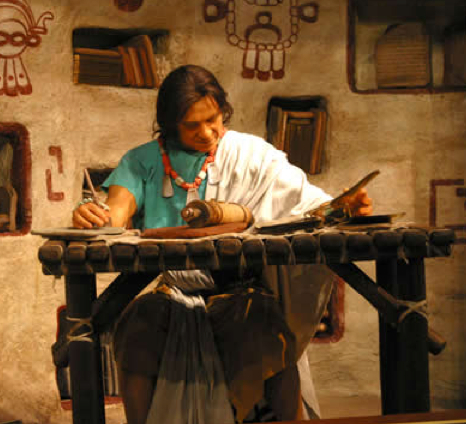
2. Can you “translate” 7:9 into plain English, without using any pronouns? (In other words, put in the antecedents for such words as “ye,” “this,” and “that.”)
3. What are the most important changes which have occurred among the Nephites between chapters 7 and 8?
4. Moroni suggests in 8:12, 9:31-33, and in the title page that there could be “imperfections” in the Book of Mormon. To what sort of imperfections do you think he is referring? Do you know of any?

5. Can you guess what textual change of just one letter in 8:10 would make the passage make more sense?
6. What do you suppose the “greater things” could be that Moroni promises to those who faithfully receive the Book of Mormon?
7. In 8:14-16 blessings are promised to whoever would bring the Book of Mormon “to light.” To whom would that be referring?
8. Can you rephrase and amplify 8:18 to make it clearer?
9. In 8:23 we have one more exhortation to study the Book of Isaiah. Why?
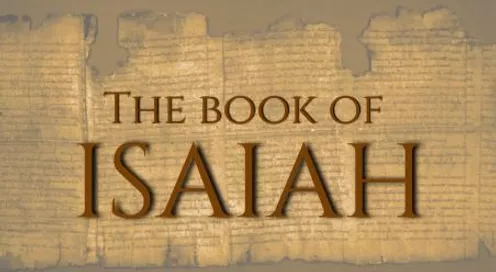
10. Of what particular significance is the fact that Moroni saw our day? (8:34-35) How accurately did he describe world conditions of the 19th, 20th, and 21st centuries in 8:26-41? Why is he concerned in v. 31 with the current environmental problems of dirty air and water and toxic wastes?

11. If someone used Mormon 8:37 to argue against our ornate temples, how would you answer him?

12. Do you think the “blood of the saints” of which Moroni speaks in 8:40-41 refers to the martyrdom of Joseph Smith and the persecution of others of his time, or to today’s events, or to events yet future? Why?

13. How unpleasant is the hell described by Moroni compared to that taught by traditional Christianity? (9:2-5.) Is anything accomplished by threatening people with hell, or should we simply try to persuade them with the promise of heaven?

14. Can you sum up Moroni’s very persuasive argument in verses 9:7-20 into just a brief sentence or two? (Can you find a verse in which Moroni himself does just that?)
15. What does Moroni say to those who would commit suicide to escape present unhappiness? How is that like the young woman who got married so she could quit work? (9:14.)

16. If no one else could read the Nephites’ language (9:34), how could Charles Anthon pronounce as correct the partial translation shown him by Martin Harris?
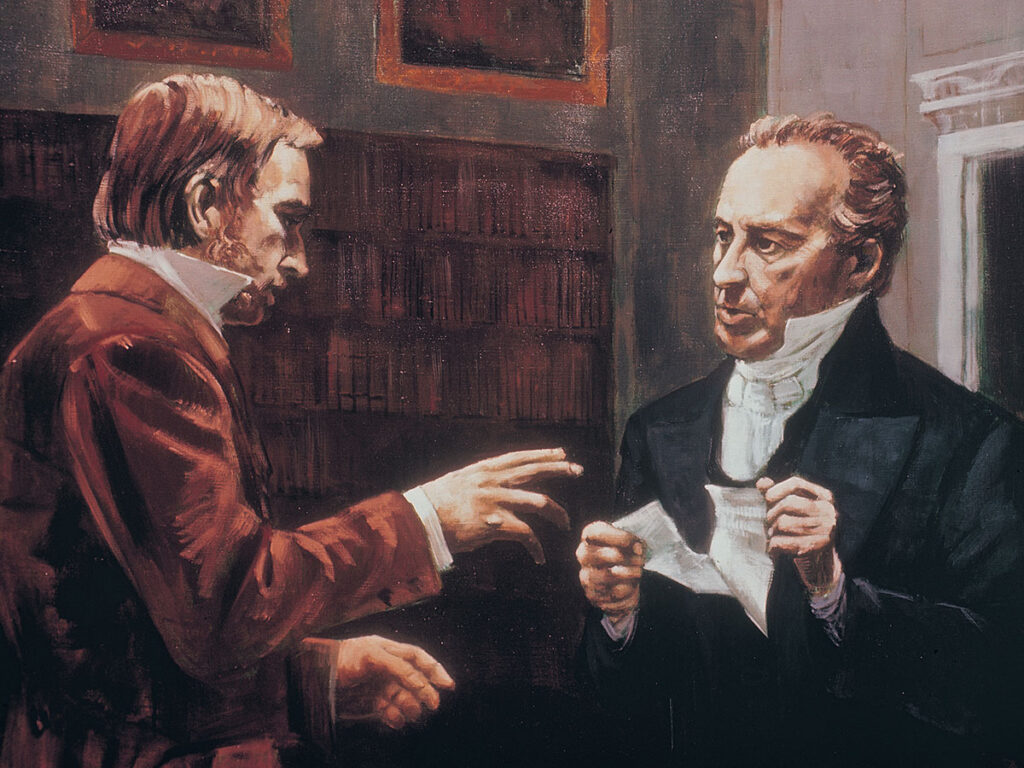
17. Why did Mormon and Moroni write in reformed Egyptian, rather than in the Hebrew with which they felt more comfortable? (9:32-33)
18. How does Mormon’s and Moroni’s writing of the Book of Mormon help them “rid [their] garments of the blood of [their] brethren? What current application could we find for that passage? (9:35)
19. What other passages in this week’s reading are worth marking and commenting on in your opinion?
Possible Answers to Points to Ponder in Mormon 7-9
1. Mormon 7 is the last chapter written by Mormon in the Book of Mormon and constitutes his “farewell” to his readers. To whom, specifically, does he say he is writing? Why do you think he started out by telling his readers who they were? Which verse more than any of the others sums up the essential message of this chapter?
He is writing specifically to the latter-day Lamanites, and he wants them to know they are heirs of wonderful promises made to their Israelite forefathers. Verse 10 is probably the best summary.
2. Can you “translate” 7:9 into plain English, without using any pronouns? (In other words, put in the antecedents for such words as “ye,” “this,” and “that.”)
The Book of Mormon is written so that latter-day readers will believe the Bible; and if those readers will believe the Bible, the readers will also believe the Book of Mormon. And if the readers believe the Book of Mormon, the readers will know about the relationship between themselves and their ancestors and the great things God did among those ancestors.
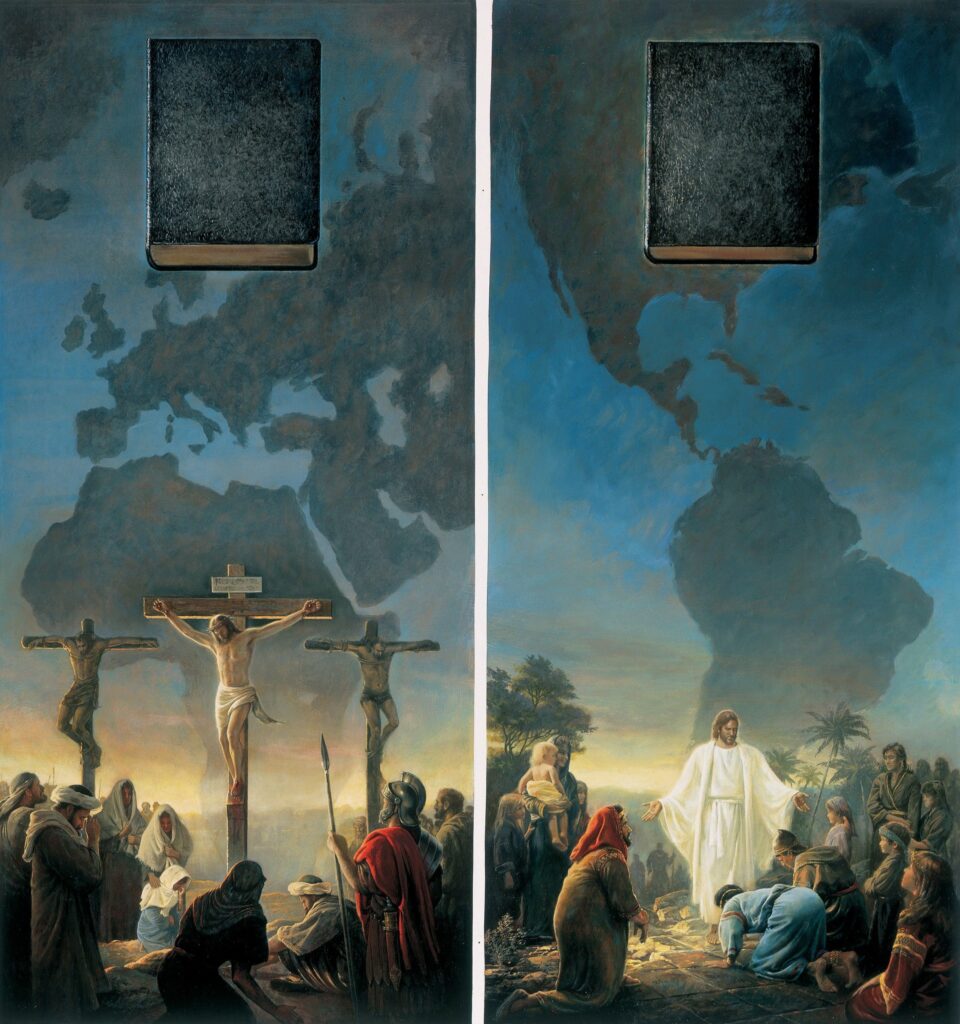
3. What are the most important changes which have occurred among the Nephites between chapters 7 and 8?
It’s at least fifteen years later in chapter 8. Mormon has died, along with any other known surviving Nephites, and Moroni is now the one who is writing and is completely alone.
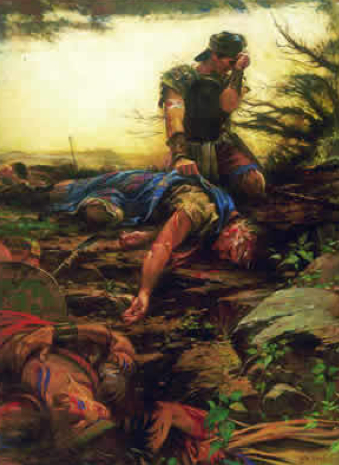
4. Moroni suggests in 8:12, 9:31-33, and in the title page that there could be “imperfections” in the Book of Mormon. What sort of imperfections do you think he is referring to? Do you know of any?
He is no doubt referring to possible grammatical errors or awkwardness in phraseology due to their writing in Egyptian rather than the more familiar Hebrew. The following question #5 suggests one possible human error. The difference between the English and Spanish versions of Mormon 2:2 suggests another. (The English version says Mormon was in his sixteenth year, or in other words 15, when he became head of the army. The Spanish version says he was sixteen.) But there is no error in the doctrine contained in the book.
5. Can you guess what textual change of just one letter in 8:10 would make the passage make more sense?
”Whither,” which means “where,” would probably be a better reading than “whether,” which means “if,” in this case. Moroni had no doubt that the three Nephite disciples were still upon the earth. He knew that was what Jesus had promised them. He and his father had both seen them. He just didn’t know where they were at the time he was writing this passage. The printer’s manuscript suggests that the current reading is the result of a typesetter’s error.
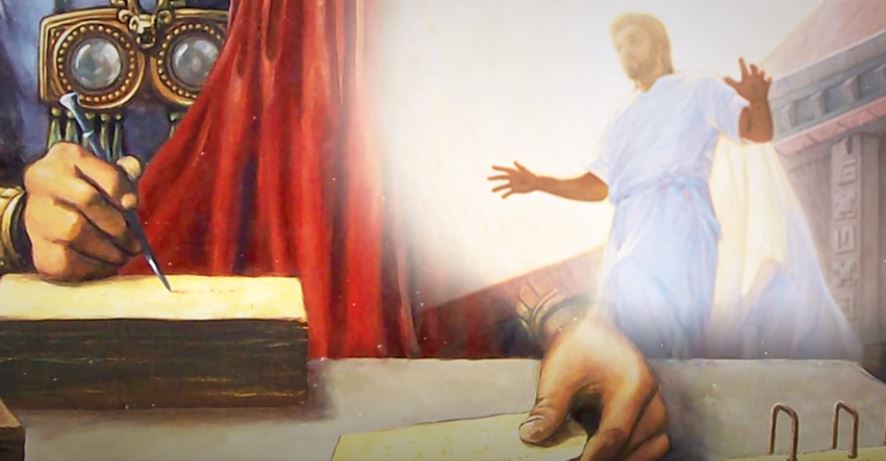
6. What do you suppose the “greater things” could be that Moroni promises to those who faithfully receive the Book of Mormon?
It would likely include the sealed portion of the Book of Mormon and the record of the lost tribes, along with other ongoing revelation through the living prophet.
7. In 8:14-16 blessings are promised to whoever would bring the Book of Mormon “to light.” To whom would that be referring?
Obviously, it would refer first and foremost to Joseph Smith. But it could also apply to anyone who helps bring the book to light in the life of another. So, missionaries, parents, and teachers could lay claim to the same promised blessings.
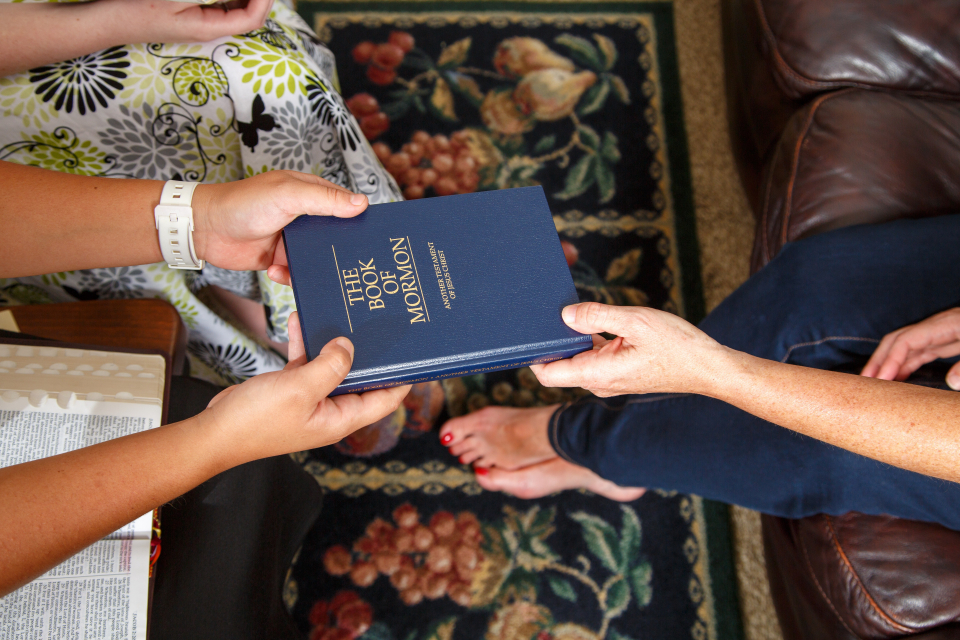
8. Can you rephrase and amplify 8:18 to make it clearer?
“Anyone who says, ‘Show me the plates of the Book of Mormon, or I’ll beat you,’ is in danger of the Lord’s judgment.”
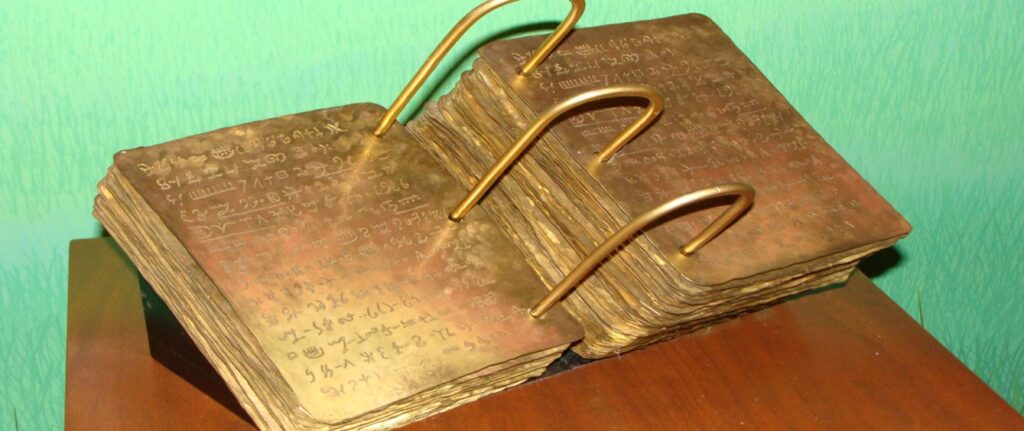
9. In 8:23 we have one more exhortation to study the Book of Isaiah. Why?
The Nephite prophets, including Nephi, Moroni, and Jesus Himself, seem to have considered Isaiah to be the greatest of all the Old Testament prophets so far as what he wrote concerning the house of Israel and its glorious future destiny was concerned.
10. Of what particular significance is the fact that Moroni saw our day? (8:34-35) How accurately did he describe world conditions of the 19th and 20th centuries in 8:26-41? Why is he concerned in v. 31 with the current environmental problems of dirty air and water and toxic wastes?
Knowing that Moroni saw our day leads us to suspect that Mormon, who was even more central to the compilation of the Book of Mormon, probably had the same privilege. If so, he would have selected materials for inclusion in the book with full awareness of the conditions and needs of his latter-day readers. There is little doubt of the accuracy of the picture Moroni paints in 8:26-41. But his major concern was not the physical environment. As bad as air and water pollution is, Moroni was undoubtedly more concerned with the spiritual pollution which he knew would be so pervasive in the latter days.
11. If someone used Mormon 8:37 to argue against our ornate temples, how would you answer him?
We don’t adorn temples in order to gratify our pride in a luxurious building but because the Lord has directed that temples be as lovely as we can make them, as a mark of our devotion to Him.
12. Do you think the “blood of the saints” of which Moroni speaks in 8:40-41 refers to the martyrdom of Joseph Smith and the persecution of others of his time, to today’s events, or to events yet future? Why?
Certainly it would include Joseph Smith and others of his century, but the context of this passage seems to suggest that it is referring to something ongoing at the time the Lord comes—that He will “not suffer their cries any longer.”
13. How unpleasant is the hell described by Moroni compared to that taught by traditional Christianity? (9:2-5.) Is anything accomplished by threatening people with hell, or should we simply try to persuade them with the promise of heaven?
While hell is a spiritual condition rather than physical torment, it is no doubt even more exquisite than physical pain to those who experience it. It would be great if all people could be motivated through love and persuasion, but Book of Mormon prophets more than once suggested that fear worked on some that love couldn’t reach.
14. Can you sum up Moroni’s very persuasive argument in 9:7-20 into just a brief sentence or two? (Can you find a verse in which Moroni himself does just that?)
It is generally accepted that there were miracles in Bible times. And the Bible says that God does not change, in which case it should be obvious that there should be miracles today. 9:19 basically says that.
15. What does Moroni say to those who would commit suicide to escape present unhappiness? How is that like the young woman who got married so she could quit work? (9:14.)
He emphasized that the same emotions we have here will follow us into the hereafter. One doesn’t escape from misery through suicide but is just as miserable in a new realm, like the young woman who found she had to work even harder after marriage.
16. If no one else could read the Nephites’ language (9:34), how could Charles Anthon pronounce as correct the partial translation shown him by Martin Harris?
Anthon was obviously bluffing, not wanting to admit that he couldn’t read the characters Harris has shown him, despite his being one of the country’s foremost linguists of the day. That helps account for his insistence on getting his certificate of authenticity back and destroying it once Harris told him that the characters came from gold plates revealed by an angel! Other contradictions Anthon made in various tellings of the story lend additional credence to the idea that he is lying. But the fact that Martin Harris returned from his journey more convinced than ever that the record was genuine suggests that Charles Anthon really did initially say what Harris said he did.
17. Why did Mormon and Moroni write in reformed Egyptian, rather than in the Hebrew with which they felt more comfortable? (9:32-33)
See the article at https://knowhy.bookofmormoncentral.org/knowhy/why-did-mormon-and-moroni-write-in-reformed-egyptian and the related video at https://www.youtube.com/watch?time_continue=8&v=tvdDhAWDfYQ&feature=emb_logo for some interesting thoughts on the subject.
18. How does Mormon’s and Moroni’s writing of the Book of Mormon help them “rid [their] garments of the blood of [their] brethren? What current application could we find for that passage? (9:35)
By doing their best to teach not only their own generation but a future one about the gospel, they could not be held accountable for the sins of their hearers and readers. Similarly, we today can help rid our garments figuratively of responsibility for the sins of those to whom we minister or for whom we have other stewardship if we are faithful in doing our duty to them.
19. What other passages in this week’s reading are worth marking and commenting on in your opinion?
Perhaps the following would qualify:
a. 7:7: Heaven is “a state of happiness which hath no end.”
b. 8:22: “For the eternal purposes of the Lord shall roll on, until all his promises shall be fulfilled.”
c. 8:24: The Book of Mormon is a record of countless wonderful miracles which the Lord performed for his ancient saints.
d. 9:20: Miracles cease because of unbelief and sin.
e. 9:21: Whoso believeth without doubt will receive whatever he asks for.
f. 9:25: The Lord will “confirm” his words to all who believe.
g. 9:27: Work out your own salvation with fear and trembling.
h. 9:28: Be wise in the days of your probation.
